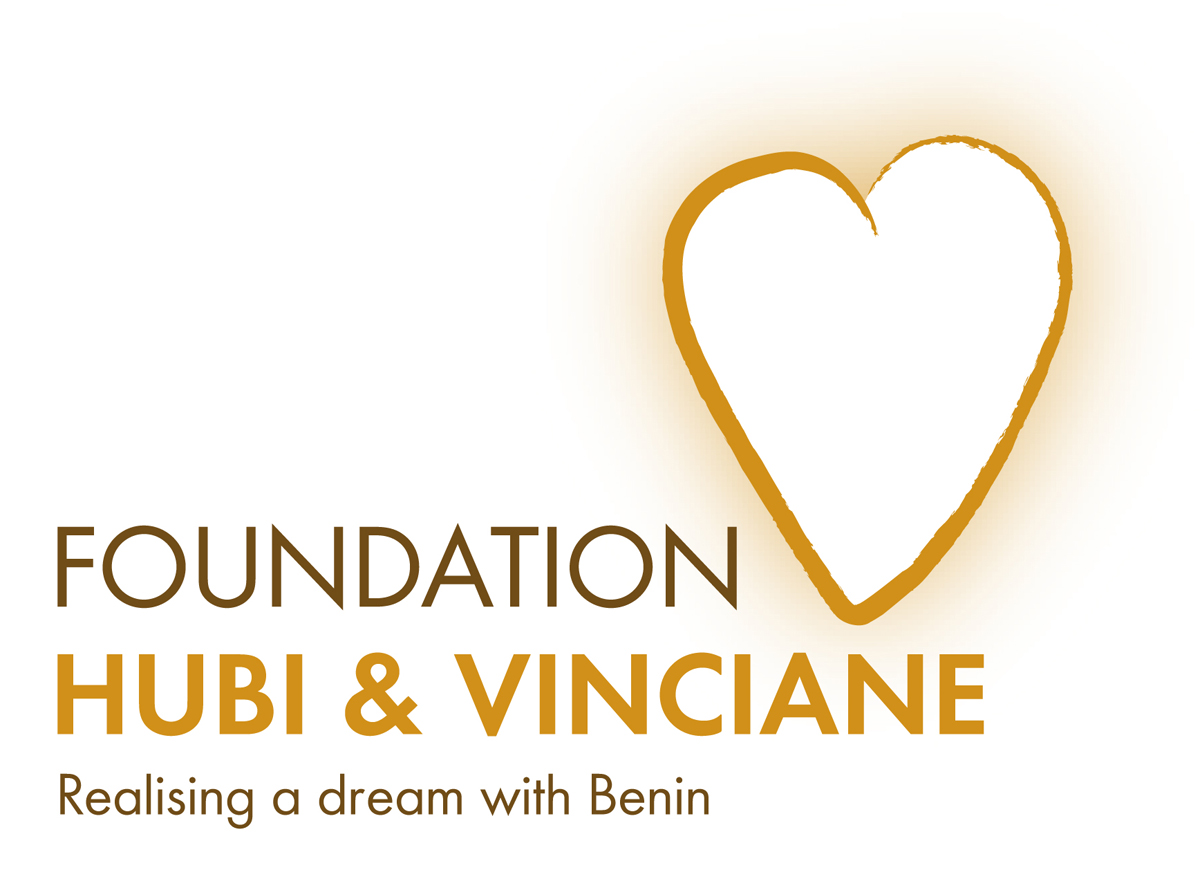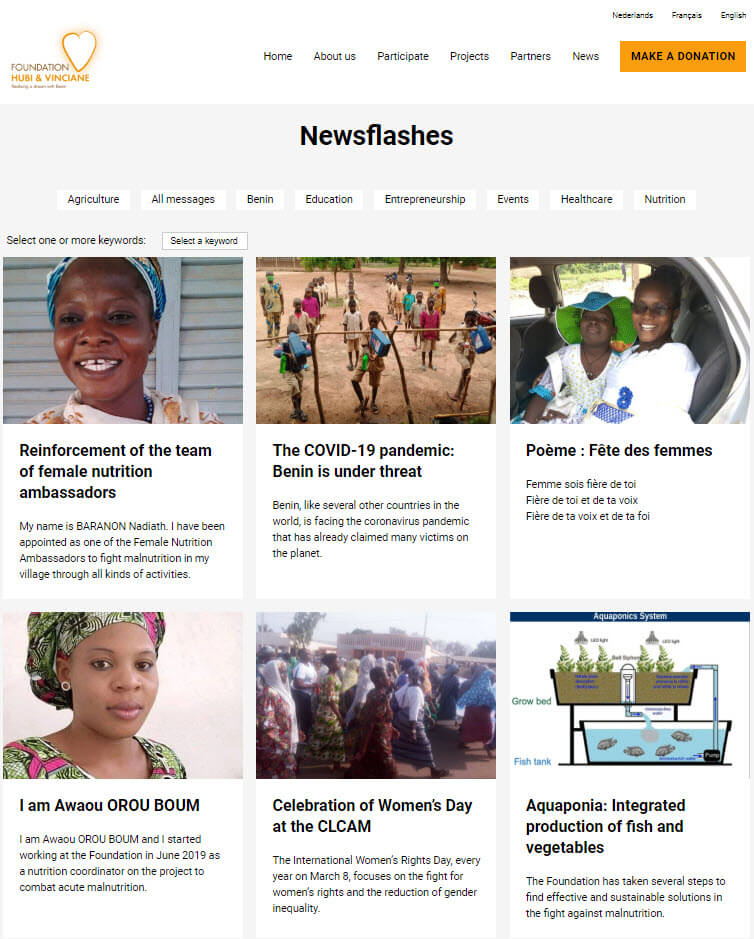Vegetable gardens project
Healthy food – locally grown
The establishment of community vegetable gardens is part of our fight against malnutrition.
According to the most recent statistics, about 35% of children under five are still chronically malnourished in the bush villages of the region where we, as a Foundation, are active. And this has less to do with the quantity than with the composition of the food. After all, too often, it still consists only of yam or cassava. Fresh and healthy vegetables and fruits such as tomatoes, beans, cabbage and bananas are rarely available in the remote villages.
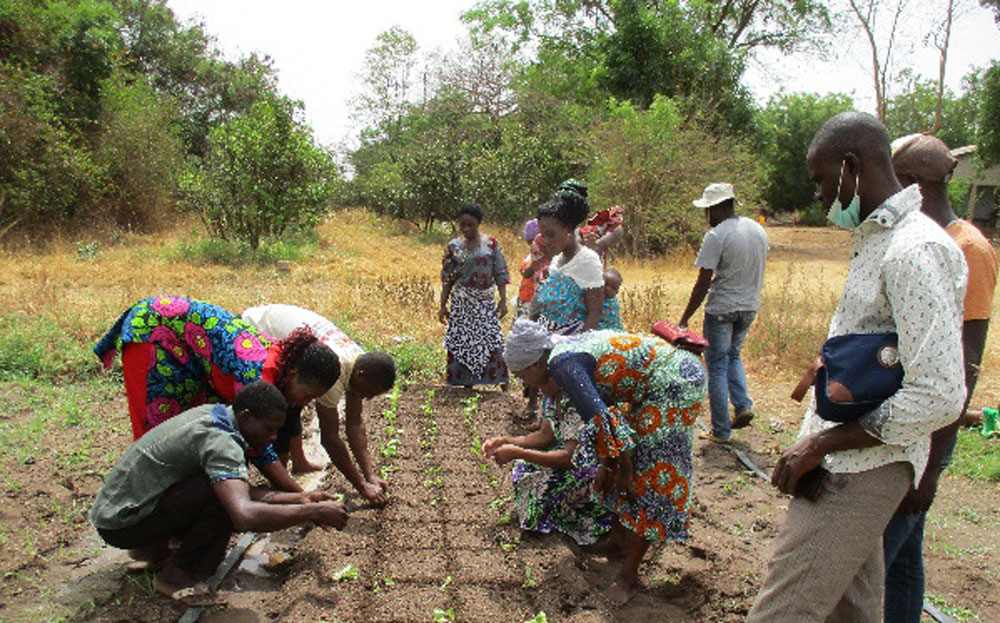
The project
Our ambition is to establish irrigated community vegetable gardens in 70 villages. The irrigation system will allow planting and harvesting throughout the year, even during the dry season. We will also ensure sustainable local employment by placing the gardens in cooperatives of about 15 women each.
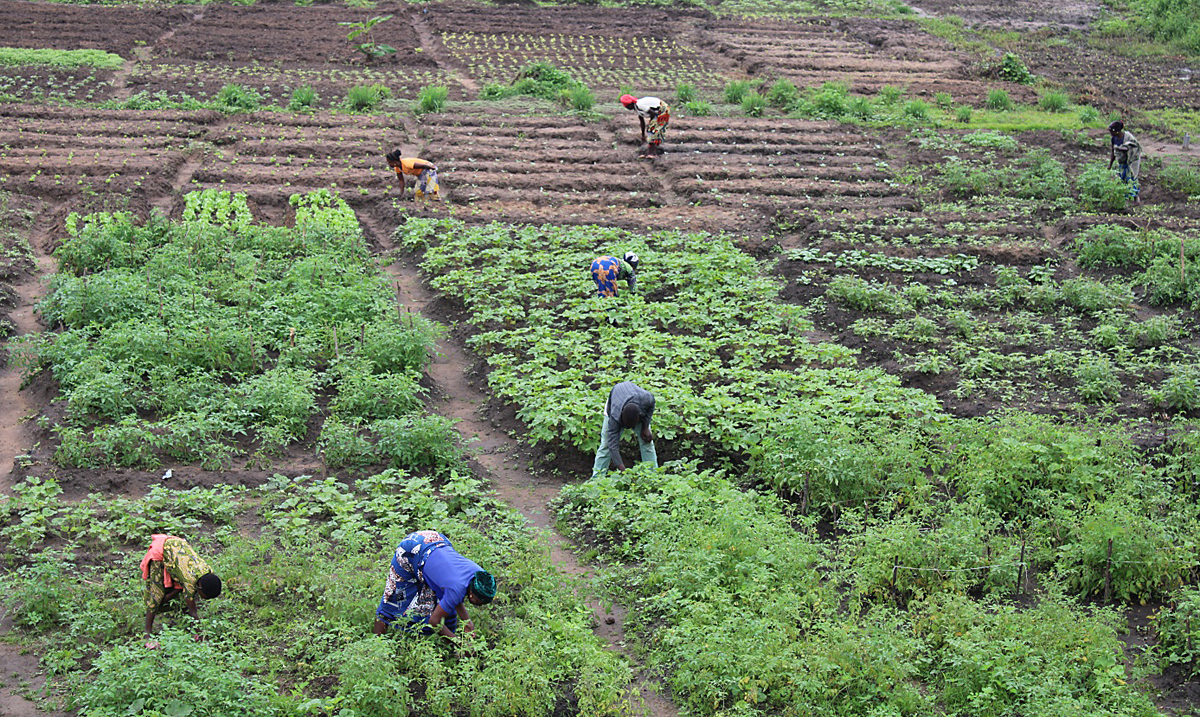
Objectives
By creating the gardens, we aim to remedy the shortage of fruits and vegetables and contribute to a balanced and healthy diet. Irrigation will enable villagers to plant, grow and harvest during the rainy and dry seasons. We also want to contribute to women’s empowerment and financial independence through cooperatives.
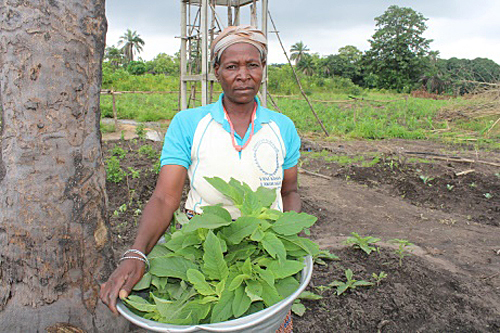
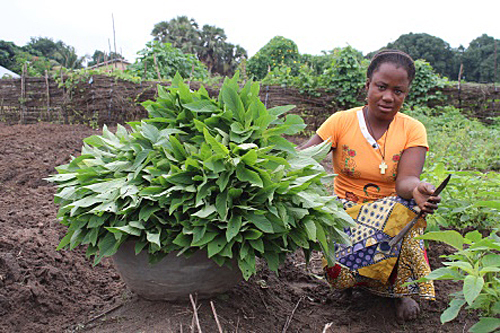
Description
In the selected villages, we enter into an extended lease agreement with the local government so that the cooperatives can use the land for several years.
We equip each community garden with a well with a solar-powered pump, a water tower, an irrigation system and walls to hold the water.
About fifteen women will work in the garden in each village in a cooperative model. They grow and harvest for their families and sell the surplus to their fellow villagers. They set aside a portion of the sale proceeds to maintain and, if necessary, repair the infrastructure. As a Foundation, we have experience with this way of working. The wells in the schools and villages are also managed cooperatively with excellent results.
Sidi and Moussa, our Foundation’s two agronomists, guide the women in starting the garden and provide regular follow-up.
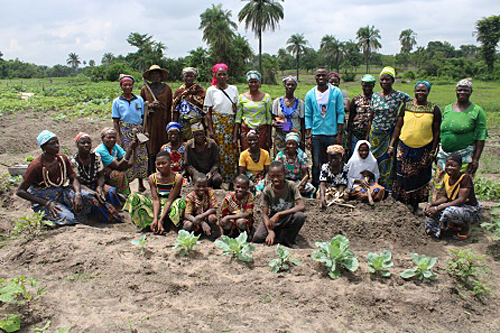
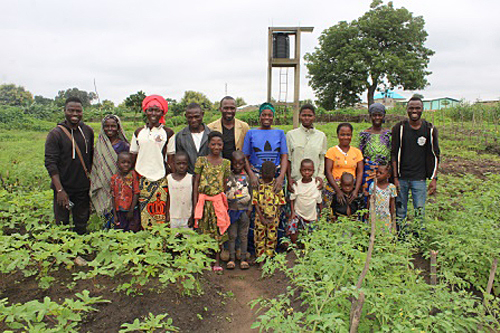
Results and development
The negotiations with local authorities, the construction of the gardens and irrigation facilities, as well as the selection and training of the women took about a year. Still, by the end of August 2022, the first 13 vegetable gardens were operational. The women mainly grow tomatoes, peppers, okra, cabbage, lettuce, amaranth, crin crin, carrots, onions and eggplants. Several gardens also have banana plants.
We are still looking for funds to build the gardens in the remaining 57 villages.
Our partners in this project
The creation of the first vegetable gardens was made possible thanks to grants from the Elisabeth and Amélie Fund, managed by the King Baudouin Foundation, subsidies from the province of Antwerp, the province of West Flanders, the province of Flemish Brabant and the city of Mechelen, as well as income from our campaign “A toutes jambes pour le Bénin 2021“.
We want to thank them for their funding expressly. Thanks to their support, the gardens built mean a world of difference to the villages.

You can always contribute financially to one of the following:
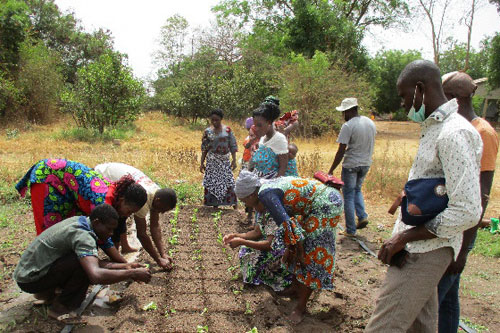
- A package of seeds and plants: 20 euros
- A set of tools (spade, rake, hoe): 50 euros
- A balanced nutrition workshop for 50 young mothers: 100 euros
- Contribution for an irrigation system with solar panels: 150 euros
- Contribution for the construction of a well: 250 euros
Or you can always transfer an amount to the account number BE14 7865 8929 4683 of the Hubi & Vinciane Foundation with the mention “Community vegetable gardens + your name“.
You will receive a tax certificate for donations from 40 euros. For donations made in 2021, the tax reduction is 45%.
The first communal vegetable gardens are almost ready.
One of our projects to combat malnutrition is the creation of communal vegetable gardens in the villages
Home gardens useful for women
As a foundation, we also invest in small vegetable gardens for one family at a time.
